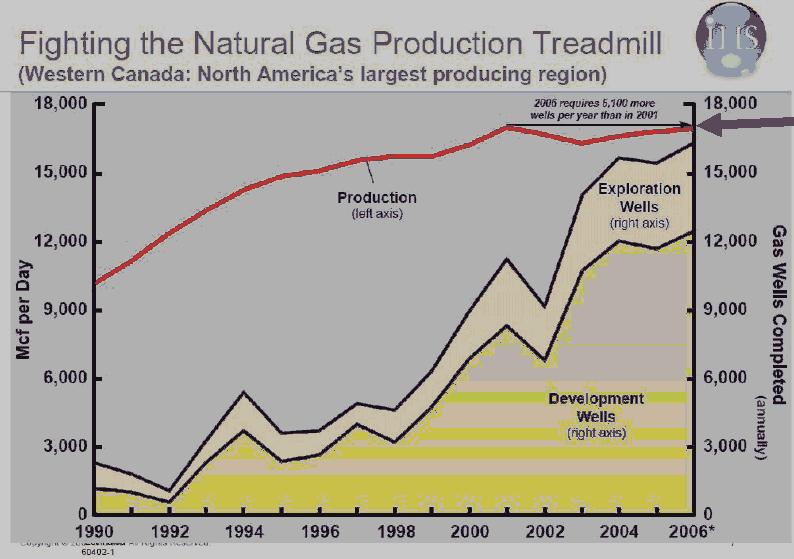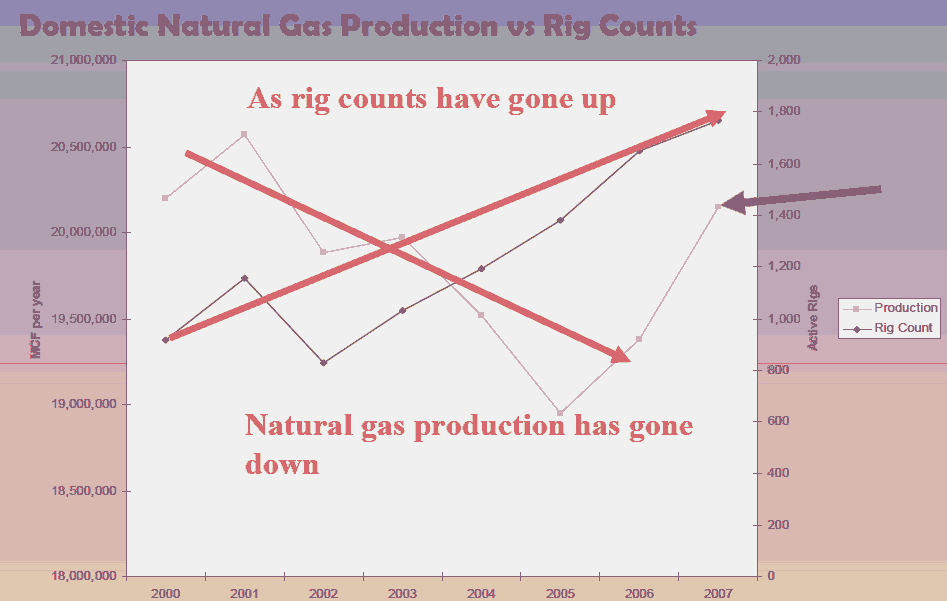Natural gas is the ideal electricity generating source:
- No sulfur or mercury like coal
- No particulates like diesel fuels
- Isn’t radioactive like uranium
- It’s always “on” unlike intermittent sources such as wind and solar
- Natural gas power plants are essential to the grid because they can be ramped up and throttled down quickly to keep electric load constant. The more renewable energy you add, the more natural gas peaking plants need to also be added to the grid to balance intermittent, unreliable, and unpredictable alternative sources like wind and solar. As of 2013, all energy storage systems except pumped hydro require more energy to build and maintain than the energy they can store and deliver.
1) Currently it’s used for about 25% of our energy (USA), mainly for electricity, heating, and cooking.
2) But we don’t have enough natural gas left to substitute for oil – natural gas production peaked about 1970 and has a much steeper depletion rate than oil. So even though President Obama recently said we have “100 years of natural gas”, it’s not clear that we can drill enough to keep up with the incredibly fast rate of depletion of the gas released by fracking.
 Source: Colorado Geological Survey
Source: Colorado Geological Survey
3) We could import natural gas in liquefied form (LNG), but that requires billions of dollars of large processing plants and special ocean-going tankers. All of the proposed new LNG facilities have been prevented by communities worried about the explosive potential of the LNG facilities and ships.
4) Natural gas can’t be used by most vehicles, though there are Fed Ex and other vehicle fleets running on natural gas currently. It can take up to 8 hours to fill a tank up with gas – it needs to be forced in and pressurized to be dense enough to power a vehicle.

